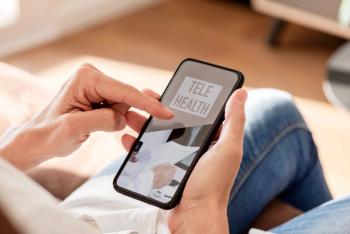
Telemedicine in the time of COVID-19: The Rules Are Changing
Relaxed regulations make it easier to practice-and get paid for-telemedicine.
It seems like yesterday that tech enthusiasts were complaining that too few physicians were embracing telemedicine, and doctors who did use telemedicine were complaining about how hard it was to get paid for it. That’s just one more thing coronavirus changed in an instant. According to a recent survey by the physician recruiting firm Merritt Hawkins, almost half of all physicians are now treating patients via telemedicine. That’s up from 18 percent in 2018. Meanwhile, CMS is relaxing the rules about what they will pay for.
If you’re new to practicing virtually, here are some tips for making telemedicine work for you-and getting paid for it.
Trending:
Pick Your Platform
The first decision you face once you’ve decided to practice telemedicine is which platform to use. And as it has done with almost every other aspect of life, the coronavirus has changed this, too. The Office for Civil Rights has relaxed some of the HIPAA requirements for telehealth. However, that doesn’t mean anything goes. “CMS is still guarded about platforms to use,” says
Other aspects of HIPAA regulations remain in place. “Even though the use of non-HIPAA compliant platforms has been loosened, HIPAA rules should be followed as closely as possible,” advises Carol Self, coding and compliance strategist with the American Academy of Family Physicians (AAFP). “Medical conversations should take place in a private space, and communication should be patient authorized and patient initiated.”
It’s also important to keep in mind that these relaxed guidelines are temporary. “You’ll need to use a service that’s HIPAA compliant once the public emergency is over,” says Bradley.
The AAFP does not recommend or endorse any particular platform, but products their members use include
Read More:
Code it Carefully
Once you’re up and running with a telemedicine platform, whether it’s an ad hoc solution or something more permanent, you need to make sure you
In addition, CMS is not enforcing the established relationship rule, and services can be provided to Medicare beneficiaries by phone (even without video capability) during this time.
But in order to get paid at all, you must be sure to use the proper codes. “If you don’t bill with the correct POS [Place of Service], you may not be paid at the same rate as a face-to-face visit,” says
Getting the codes right is equally important with private payers. “If you use a CPT code a payer doesn’t recognize, you’ll get a denial,” says Cantrell. Despite recent changes, billing for telehealth isn’t that much trickier than billing for any other service as long as you pay attention. “The only likely hiccups,” says
Private payers are generally falling in line with CMS, but there are some variations. The MGMA has a site with links to the major payers’ coronavirus billing policies. You can also check the website
Coronavirus has pushed the medical community over the cliff into telemedicine, but the fall is not that steep, and CMS is helping to make it a soft landing.
References:
Telemedicine survey:
https://www.merritthawkins.com/news-and-insights/media-room/press/-Physician-Practice-Patterns-Changing-as-a-Result-of-COVID-19/
OCR statement re: HIPAA regulations:
https://www.hhs.gov/hipaa/for-professionals/special-topics/emergency-preparedness/notification-enforcement-discretion-telehealth/index.html
https://www.hhs.gov/coronavirus/telehealth/index.html
MGMA payer site:
https://www.mgma.com/landing-pages/covid-19-resource-center/financial-assistance-and-guidance-for-practices
Newsletter
Optimize your practice with the Physicians Practice newsletter, offering management pearls, leadership tips, and business strategies tailored for practice administrators and physicians of any specialty.







